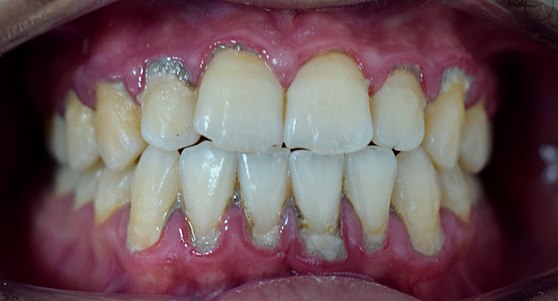Gum Disease treatment

Periodontal (Gum disease) disease is an infection of the tissues supporting and surrounding the teeth.
It is mainly caused by the accumulation of bacteria from the dental plaque that inflames and damages the gums. This chronic infection attacks below the gum line where it breaks down the attachment of the tooth and its supporting tissues.
Several factors increase the risk of developing gum diseases, the most common of which include tobacco smoking and chewing, systemic illnesses like diabetes or cancer, hormonal changes during pregnancy and menstruation, medications such as contraceptives and anticonvulsants, ill-fitting bridges and fillings that have become defective.
Regular dental check-ups and examinations are important because it is possible to have gum infections without the usual signs and symptoms. They may advance painlessly, exhibiting few evident signs even in the late phase of the disease. This explains the increased risk of losing one’s teeth.
Dont wait to notice these symptoms before visiting a dentist!
